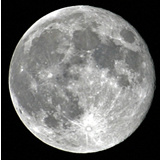Today’s word, cawl /kaul/, is a Welsh word meaning soup, broth, gruel or a mess.
Cawl is also a traditional Welsh stew made with meat and vegetables. It’s the kind of dish that’s made from whatever is available so the exact ingredients vary, but it often includes lamb and leeks, and is often served with bread and cheese. There a recipe for cawl and more information here.
The word cawl probably comes from the Latin caulis, which means the stalk of a plant, a cabbage stalk or a cabbage. It is related to the Irish cál, the Scottish Gaelic càl, the Cornish caul, the Breton kaol, the German Kohl, the English cole, as in coleslaw, and the Scots kail, all of which mean cabbage. The Welsh word for cabbage is completely different – bresychen.
The Proto-Indo-European root of caulis is *kaw(ǝ)l, which means tubular bone or pipe.

 As I’m sure many of you know, haiku (俳句) are short Japanese poems made of of 17 syllables usually in 3 lines of 5, 7 and 5 syllables. The only Japanese haiku I can remember is:
As I’m sure many of you know, haiku (俳句) are short Japanese poems made of of 17 syllables usually in 3 lines of 5, 7 and 5 syllables. The only Japanese haiku I can remember is: